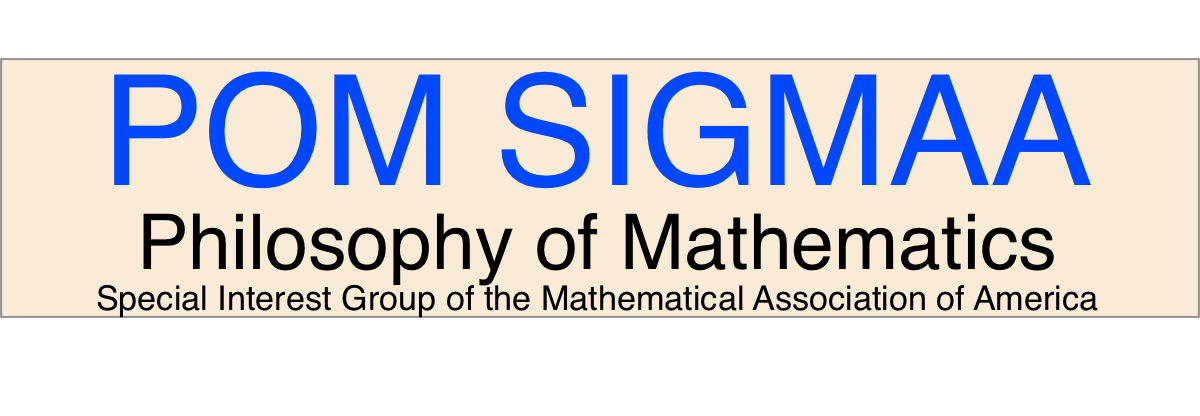Activities
Joint Math Meetings
January 4-7, 2026
Washington, DC
Washington, DC, Joint Math Meetings, January 2026
Current Directions in the Philosophy of Mathematics, I
In the last 15 years, work in the philosophy of mathematics that is of interest to mathematicians has broadened, due in part to a new organization, the Association for the Philosophy of Mathematical Practice. This session will have speakers speaking on a range of topics in the philosophy of mathematics, both of the traditional variety (involving foundations) and the more recent developments.
WEWCC, Room 143B
Each talk will be 15 minutes in length beginning at the time listed, followed by 10 minutes for questions and discussion.
| Time | Presenter | Title |
|---|---|---|
| 9:00 a.m. | A. Ackerberg-Hastings | The History of Philosophies of Mathematics Education: A State of the Discipline . Slides(pptx). |
| MAA Convergence | ||
| 9:30 a.m. | Deepa Srikantaiah | India: A Calculus of Ancient Pluralism and the Quest for Harmonious Integration. Slides(pdf). |
| University of Maryland, College Park | ||
| 10:00 a.m. | Steven M. Deckelman | Philosophy’s Holy Trinity: The Dialectic in Mathematical Philosophy. Slides(pdf). |
| University of Wisconsin-Stout | ||
| 10:30 a.m. | Daniel Sloughter | From Plato to Cormac McCarthy: Mathematics as Metaphor. Slides(pdf). |
| Furman University (emeritus) | ||
| 11:00 a.m. | Cancelled talk | Cancelled talk |
Current Directions in the Philosophy of Mathematics, II
WEWCC, Room 144A
Each talk will be 15 minutes in length beginning at the time listed, followed by 10 minutes for questions and discussion.
| Time | Presenter | Title |
|---|---|---|
| 1:30 p.m. | Cory Wang | The Tornado of Mathematical Knowledge: An Emergent Theoretical Framework to |
| Middle Tennessee State University | Study the Structural Dimension of the Philosophy of Mathematics | |
| 2:00 p.m. | Break: Talk Cancelled | |
| 2:30 p.m. | Break: Talk Cancelled | |
| 3:00 p.m. | S. Blake Allan | Naïve Mathematical Definition and Its Opposite. Slides(pdf). |
| Baylor University | ||
| 3:30 p.m. | Jason Rosenhouse | Carroll’s Regress, Reconsidered. Slides(pdf). |
| James Madison University |
